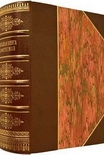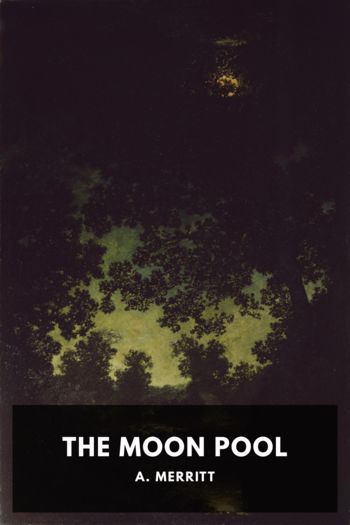How to Become a Witch, Amber K. [new books to read .txt] 📗

- Author: Amber K.
Book online «How to Become a Witch, Amber K. [new books to read .txt] 📗». Author Amber K.
Another example is a moon void-of-course, as discussed in chapter 2; you can save yourself a lot of trouble if you don’t start anything major during those periods of time.
Those are only two examples out of thousands of possible celestial events that mysteriously seem to affect or reflect human events. You can study astrology for a lifetime and still discover new aspects of this ancient art and science, or you can learn the basics and check them each day as part of your practice.
Divination
Along with magick, ritual, and healing, one of the major skills of a Witch is divination. Divination is a method of gaining information and understanding that is not normally available at the conscious level of the mind. Witches practice many, many forms of this art; we’ll discuss some of them shortly.
As with healing or any other art, some Witches are naturally gifted in this area, and others have to work harder. But any Witch can find some divinatory method for which they have a talent.
Just as magick is divided into theurgy and thaumaturgy (high and low magick; spiritual and practical), so divination can be used to learn information about the external world, or to give you understanding and clarity about your inside world.
But how does it work? To most nonmagickal folks, divination seems like fortune-telling, almost supernatural. Is it all a hoax, or do some people have amazing psychic skills, or do spirits feed us information through a deck of cards or a handful of chicken bones?
None of the above. One of the principles of magick is that everything is connected. Hindus call this connected universe “Indra’s web”; think of cords of light or energy that run from you to every other object and entity in the cosmos. Since whatever information you need is out there somewhere, you are connected to it. The idea of the Akashic Records, which hold all knowledge (past, present, and future), has also been around for a very long time. Think of them as a Super Internet.
More recently, psychologists have introduced us to the concept of the collective unconscious, a storehouse of human knowledge and memory deep beneath the subconscious mind of any individual. Divination taps into what the universe or our species knows that you are not consciously aware you know.
And fortunetelling? In forecasting events, divination does not “tell the future” because the future is not preordained. Divination can only show trends, patterns, projections, potentials—the flow of events as they will occur if nothing diverts them.
Divination can help you discover insights about yourself that are hidden to normal waking consciousness: who you are and could become, your themes and potentials, your deep motivations and hidden strengths.
Here are some common methods of divination and examples of how they may be used. Since this is an introductory book, we will go into depth only on one basic tool: the pendulum. You can find detailed techniques for the rest of these in specialized books.
Tarot: Many, many beautiful sets of tarot cards are available today; some people collect them because they are so diverse and colorful. The first decks, from about 600 years ago, were Italian, but there are decks with Egyptian, Mayan, Celtic, Goddess, and Native American themes, and a hundred other variations. Many are based on the Rider-Waite Tarot, designed by occult scholar A. E. Waite, which set a new standard when it was published by the Rider Company in 1909. (Today it is often called the Rider-Smith or Waite-Smith deck to acknowledge the artist, Pamela Colman Smith.)
There are three primary approaches to reading the cards. First, each card’s meaning can be assigned in advance, usually by the deck’s designer in an accompanying book. Second, the reader can tap their psychic sensitivity to understand what a card means for a particular client (or “querent”) at that moment. Third, the reader can ask questions to help the querent find their own understanding of each card, so the meaning becomes intensely personal and will vary at each reading.
You can read a single tarot card or choose several and arrange them in a pattern called a spread. Books on tarot are full of spreads, requiring anywhere from two cards to dozens. In any given spread, each place in the pattern has a meaning that will affect how the card is read. For example, suppose you want to know about a potential love relationship, and you do a five-card spread with earth, air, fire, water, and spirit positions. The cards in those positions may answer these questions, respectively:
(Earth) Are we a good match physically and sexually?
(Air) Are we mentally compatible? Will we communicate well and understand each other?
(Fire) Is it a high-energy relationship? Is there passion?
(Water) Is there a heart connection? Is there romance?
(Spirit) Will we find common ground in terms of our religious beliefs or spiritual paths?
If you have no tarot experience, start with a basic deck like the Rider-Smith and work with it. Once you understand the basic structure of the deck, you can seek a deck, reading style, and spread that work well for you.
Tarot for the nobility
Tarot cards were probably first invented in the Middle Ages, and originally every card in each deck was hand painted, and sometimes gold leaf was added. Each deck was unique, and only the very wealthy could afford them. One of the earliest decks is called the Visconti-Sforza Tarot, commissioned by two noble families in fifteenth-century Italy. Replicas have been printed in recent times, though four cards were missing and modern artists had to create new ones in the same style.
Other Card Sets: Some wonderful card sets other than tarot decks are very popular for guidance and divination. Among them are:
Goddess cards of several varieties. We really like the Goddess Guidance Oracle Cards by Doreen Virtue, for the quality and intensity of the art.
Medicine Cards: The Discovery of Power Through the Ways of Animals by Jamie Sams and David Carson
The Druid Animal Oracle by





Comments (0)